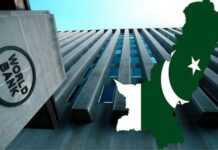- Over 90% of remittances to Pakistan are routed through Indian exchange companies, primarily from the Middle East
The State Bank of Pakistan (SBP) has directed banks to closely monitor dollar outflows as tensions with India escalate, raising concerns that increased demand for the US dollar could strain the market, Dawn reported..
Despite this directive, currency dealers in both the interbank and open markets reported no signs of panic buying or sudden spikes in demand for dollars.
Currency dealers said that over 90% of remittances to Pakistan are routed through Indian exchange companies, primarily from the Middle East. These companies play a crucial role in facilitating the transfer of funds, and any disruption in this channel due to the ongoing conflict could have significant consequences for Pakistan’s economy.
Indian exchange companies have a widespread network across regions including the Middle East, Europe, and the United States. They collect local currencies from overseas Pakistanis and remit U.S. dollars to Pakistan via banking channels. The SBP provides incentives of Rs 15 to Rs 20 per dollar to these companies, which are paid in U.S. dollars.
One currency dealer said that if the situation escalates into a full-scale war, India could potentially use these companies as leverage against Pakistan.
Despite the escalating situation, the currency market remained calm. Zaffar Paracha, General Secretary of the Exchange Companies Association of Pakistan, stated that there was no panic in the open market nor any noticeable increase in demand for dollars.
He reassured that any potential shortages could be managed, but emphasized that a prolonged conflict would be harmful for both countries.
Financial analysts generally believe that while a full-scale war between India and Pakistan would have severe short-term effects, it is unlikely to last long due to the significant economic repercussions for both nations.
On the first day after India’s unprovoked strikes, the market saw chaotic trading initially, but it quickly stabilized. The Pakistani Rupee (PKR) and Indian Rupee (INR) remained mostly unchanged, although swap premiums did rise slightly. Bond yields in Pakistan edged higher during the day but ultimately closed unchanged. The markets have largely shrugged off the uncertainty, with analysts predicting limited long-term impact if the situation does not escalate further.























